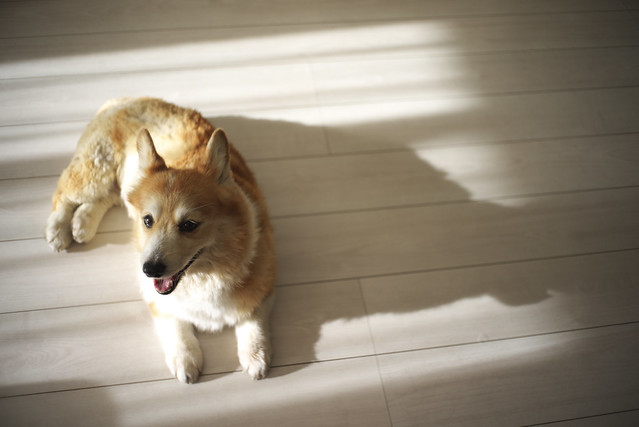Words for happy, forunate and related things in Celtic languages.
Words marked with a * are reconstructions.
| Proto-Celtic | *sognāwos = well-grown |
|---|---|
| Old Irish (Goídelc) | sona [ˈsona] = happy, fortunate sonaide = prosperous, fortunate, happy, lucky |
| Middle Irish (Gaoidhealg) | sona = prosperous, fortunate, lucky sonaide = prosperous, fortunate, happy, lucky sonaige = happiness sonann = properous land |
| Irish (Gaeilge) | sona [ˈsˠʊn̪ˠə] = happy, lucky, fortunate sonaídeach = easy, untroubled sonas = happiness, good luck, good fortune sonasach = happy, lucky, fortunate |
| Scottish Gaelic (Gàidhlig) | sona [sɔnə] = content, happy sonas [sɔnəs] = happiness, contentment |
| Manx (Gaelg) | sonney = affluent, lucky, fortunate, happy |
Etymology: from Proto-European *ǵneh₃- (to recognise, know) [source]. Words from the same root include gnomon (a pointer on a sundail), ignore, noble, normal, glory in English, the Irish word gnúis (face) in Irish, gnùis (face) in Scottish Gaelic, and gnis (jaw, chin, face) in Welsh [source].
| Proto-Celtic | *lowenos = merry, joyful |
|---|---|
| Gaulish | *Lawenos = name |
| Proto-Brythonic | *llowen = happy |
| Middle Welsh (Kymraec) | llauen, llewyn, llawen = merry, jovial, glad, cheerful, happy llawena, llawenu = to make happy, gladden, cheer, delight llawenhau, llywenhav, lawenhäu = to rejoice, be/make joyful |
| Welsh (Cymraeg) | llawen [ˈɬau̯ɛn / ˈɬau̯an] = merry, jovial, glad, cheerful, happy, blithe, joyful, joyous, jubilant; bringing happiness, pleasant, delightful llawenaf, llawenau = to make happy, gladden, cheer, delight llawenaidd = glad, cheerful, happy, pleasant, delightful llawender = gladness, happiness, joy llawenhaf, llawenhau = to rejoice, be joyful, be/make glad, be joyous, exult, be cheerful, gladden, cheer (up), hearten llawenol = glad, cheerful, happy, jubilant |
| Old Cornish | louen = happy |
| Middle Cornish (Cernewec) | lowen = glad, joyful, merry loweneder = joy, mirth lowene, lowené = joy, bliss, gladness, mirth lowenec, lowenek = glad, joyful, merry lowenhe, lowenhé = to cause, rejoice, make/be glad, gladden, comfort |
| Cornish (Kernewek) | lowen [‘lɔwɛn / ‘lu:ɐn] = glad, happy lowenek [lɔ’wɛnɛk / lə’wɛnɐk] = cheerful, gay, happy, joyful, merry lowena = bliss, cheer, happiness, joy lowender = mirth lowenek = cheerful, happy, joyful, merry lowenhe = to rejoice, delight, make happy |
| Middle Breton (Brezonec) | louen, laouen = happy, cheerful, cordial, warm louenhat, louenhaff = to become more cheerful, rejoice |
| Breton (Brezhoneg) | laouen [ˈlɔwːɛn] = happy; willingly, gladly laouenaat = to rejoice, satisfy laouenek = friendly, convival |
Etymology: from the Proto-Indo-European *leh₂w- (to seize, gain, benefit, prize) [source]. Words from the same roots include golud (wealth, riches) in Welsh, luach (value, price, reward) in Irish, lucre and galore in English, and lön (reward, salary, wage) in Swedish [source].
The Welsh word hapus [ˈhapɨ̞s/ˈhapɪs] (happy, cheerful, blessed, satisfactory, fortunate, successful, prosperous) comes from English hap (chance, fortune, luck, fortuitous event), from Middle English hap(pe) (chance, luck, fortune), from Old English ġehæp (fit, convenient) and/or Old Norse happ (chance, good luck) [source].
Sources: Wiktionary, Am Faclair Beag, Online Manx Dictionary, Teanglann.ie, eDIL – Electronic Dictionary of the Irish Language, In Dúil Bélrai English – Old Irish glossary, Geiriadur Prifysgol Cymru, Gerlyver Kernewek, Lexicon Cornu-britannicum: A Dictionary of the Ancient Celtic Language of Cornwall, Dictionaire Favereau, TermOfis, Le dictionnaire diachronique du breton, Etymological Dictionary Of Proto Celtic
